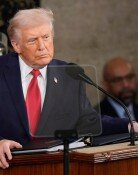Six-Party Talks Resume Today
Six-Party Talks Resume Today
Posted September. 13, 2005 07:33,
The second phase of the fourth round of six-party talks to resolve the North Korean nuclear issue will begin on Tuesday at the Diaoyutai State Guesthouse in Beijing, 37 days after the first phase came to a close on August 7 without producing an agreement.
This time the talks are expected to be concentrated on two issues that were narrowed down to in the 13-day first phase: North Koreas right to civilian use of nuclear power and the degree of nuclear renunciation.
As for the first issue, North Korea claims that it has every right to pursue peaceful use of nuclear power as a sovereign nation, while the U.S. opposes the idea citing the Norths past failure to deliver its promise not to pursue nuclear development. South Korea says North Koreas peaceful use of nuclear power should be accepted if the North eliminates its nuclear program, returns to the Nuclear Non-Proliferation Treaty (NPT), and implements its safety obligations under the International Atomic Energy Agency (IAEA).
Christopher Hill, U.S. assistant secretary of state for East Asian and Pacific Affairs and the U.S. chief negotiator, has been dialogue-oriented about the civilian nuclear power issue during the recess, saying that there is a solution. However, despite five weeks of subtle diplomacy, the opinion gap between North Korea and the U.S. remains wide.
The issue of light waterway construction is another area in which the two Koreas and the U.S. are having difficulties in reaching an agreement because they employ different approaches to the issue.
Another pending issue is the degree of nuclear renunciation. South Korea and the U.S. are urging the North to renounce all nuclear programs while the North says that it would only eliminate nuclear weapons. This issue is linked to whether civilian nuclear facilities should be renounced or not. That and the issue of peaceful nuclear use are two sides of a coin.
All these issues need to be resolved together with political decision-making by North Korea and the U.S., so one should expect the second phase of the talks to center around bilateral negotiations between the two nations, as it happened in the first phase. However, since both the issues at point and where the party-nations stand on each of the issues are clear, the six nations are expected to plunge right into the essence of the talks from the beginning, without any searching period.
Meanwhile, Hill visited South Korea on Monday, discussing in depth negotiation strategies with Song Min-soon, South Korean deputy minister of Foreign Affairs and Trade and the chief South Korean negotiator, and Unification Minister Chung Dong-young. Hill leaves for Beijing on Tuesday morning. Hills trip is seen as a multi-functioning card to fine tune the South Korean and U.S. opinions at the last minute and demonstrate the collaboration between the two nations.
As with the first phase of the talks, there is no end-date, but most observers think that the talks are unlikely to drag on. One reason is host Chinas reluctance to protract the talks. Some expect the talks to come to an end soon, successful or unsuccessful.
Jong-Koo Yoon jkmas@donga.com






![‘부화방탕 대명사’ 북한 2인자 최룡해의 퇴장 [주성하의 ‘北토크’]](https://dimg.donga.com/c/138/175/90/1/wps/NEWS/IMAGE/2026/02/27/133414028.1.jpg)
